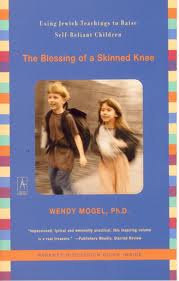Here I am, sitting on an airplane flying thirty thousand feet above a sea of clouds. The sun is just rising in the horizon, an orangy-yellow presence outside the oval plane window. I am flying to Los Angeles, where, for the next three days, I will attend the Society of Children Book Writers and Illustrators conference. Yesterday I was all mother. For the next three days I get to be all writer, guilt-free.
Guilt defines much of who I am. Since the children spend only half of the week with me, I want to give them my entire attention when they are around. Partly I do this to make up for not being there the other half of the week, and partly because I want to give them so much, but I don’t have enough time. My writing, therefore, takes second place (or even third and fourth) when the children are around.
A writers’ conference, however, is a different story. It sounds so…, well, so legitimate, so important. It sounds real! Engineers, teachers, people with real jobs go to conferences. And once in a while so do I. I go to the conference and feel that I’m doing something to further my career. I’m making contacts, deepening my knowledge of the business of writing and publishing. Then, after three days of taking myself seriously, I go back home to writing on a desk surrounded by pecking chickens, barking dogs, and attention-deprived children.
| The quiet before the storm — conference main room |
The truth is that at home I doubt the legitimacy of my writing. I minimize my computer time when the children are around so as not to encourage them to spend time on their computers as well. Except, here’s what makes no sense about this: I am not playing on the computer or watching a teen series with too-beautiful photo-shopped young people. I am working! I am writing, and someday someone will want to read what I write. Right?
Am I working, or am I playing around? Am I indulging in a hobby which might never become a job? Certainly, I don’t treat writing as a job. I do not sit at my desk 9 to 5. And if part of the definition of a job is that it earns the worker money, then I am not exactly up to standard in that. I do what I love, and I feel privileged and grateful to be able to do that. But with an inexplicable fear of what others, my children included, will say, I don’t follow my writing ambitions, yet, with the same single-minded sense of purpose that I do other goals of my life. Motherhood, for example.
My son tells me: “Why are you on the computer all the time?” “Blogging,” he answers his own question, and a tone of hurt (or is it contempt?) sneaks into his voice. Once again I realize how important it is for me to feel the legitimacy of my writing, make room for WRITER in my definition of self. It’s ok, I think, frightening though it is for me to say, not to be 100% mother all the time. I wonder what will happen when I stop being afraid of being more than mother, and give myself permission to feel sometimes all writer inside….












